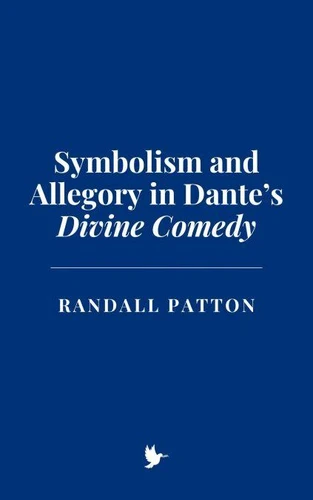Symbolism and Allegory in Dante’s Divine Comedy
Par :Formats :
Disponible dans votre compte client Decitre ou Furet du Nord dès validation de votre commande. Le format ePub est :
- Compatible avec une lecture sur My Vivlio (smartphone, tablette, ordinateur)
- Compatible avec une lecture sur liseuses Vivlio
- Pour les liseuses autres que Vivlio, vous devez utiliser le logiciel Adobe Digital Edition. Non compatible avec la lecture sur les liseuses Kindle, Remarkable et Sony
 , qui est-ce ?
, qui est-ce ?Notre partenaire de plateforme de lecture numérique où vous retrouverez l'ensemble de vos ebooks gratuitement
Pour en savoir plus sur nos ebooks, consultez notre aide en ligne ici
- FormatePub
- ISBN8230196099
- EAN9798230196099
- Date de parution17/02/2025
- Protection num.pas de protection
- Infos supplémentairesepub
- ÉditeurIndependently Published
Résumé
Dante Alighieri's Divine Comedy is one of the most revered works of Western literature, blending the poet's personal experiences with profound theological and philosophical insights. Written between 1308 and 1320, the Comedy is an allegorical narrative that follows Dante's journey through Hell (Inferno), Purgatory (Purgatorio), and Heaven (Paradiso), guided first by the Roman poet Virgil and later by his beloved Beatrice.
The work's enduring legacy lies not only in its literary beauty but in its rich layers of symbolism and allegory, which explore deep moral, spiritual, and metaphysical questions. The allegorical nature of the Divine Comedy cannot be overstated. On the surface, it is the story of one man's descent into Hell, ascent through Purgatory, and final arrival in Heaven, but beneath that narrative lies a complex web of symbolic and theological meanings.
Each of the three realms Dante visits serves as a stage for exploring the consequences of sin, the process of purification, and the ultimate reward of salvation. Through this structure, Dante invites the reader to consider not only the fate of individual souls but the broader cosmic order, where divine justice governs the human experience.
The work's enduring legacy lies not only in its literary beauty but in its rich layers of symbolism and allegory, which explore deep moral, spiritual, and metaphysical questions. The allegorical nature of the Divine Comedy cannot be overstated. On the surface, it is the story of one man's descent into Hell, ascent through Purgatory, and final arrival in Heaven, but beneath that narrative lies a complex web of symbolic and theological meanings.
Each of the three realms Dante visits serves as a stage for exploring the consequences of sin, the process of purification, and the ultimate reward of salvation. Through this structure, Dante invites the reader to consider not only the fate of individual souls but the broader cosmic order, where divine justice governs the human experience.
Dante Alighieri's Divine Comedy is one of the most revered works of Western literature, blending the poet's personal experiences with profound theological and philosophical insights. Written between 1308 and 1320, the Comedy is an allegorical narrative that follows Dante's journey through Hell (Inferno), Purgatory (Purgatorio), and Heaven (Paradiso), guided first by the Roman poet Virgil and later by his beloved Beatrice.
The work's enduring legacy lies not only in its literary beauty but in its rich layers of symbolism and allegory, which explore deep moral, spiritual, and metaphysical questions. The allegorical nature of the Divine Comedy cannot be overstated. On the surface, it is the story of one man's descent into Hell, ascent through Purgatory, and final arrival in Heaven, but beneath that narrative lies a complex web of symbolic and theological meanings.
Each of the three realms Dante visits serves as a stage for exploring the consequences of sin, the process of purification, and the ultimate reward of salvation. Through this structure, Dante invites the reader to consider not only the fate of individual souls but the broader cosmic order, where divine justice governs the human experience.
The work's enduring legacy lies not only in its literary beauty but in its rich layers of symbolism and allegory, which explore deep moral, spiritual, and metaphysical questions. The allegorical nature of the Divine Comedy cannot be overstated. On the surface, it is the story of one man's descent into Hell, ascent through Purgatory, and final arrival in Heaven, but beneath that narrative lies a complex web of symbolic and theological meanings.
Each of the three realms Dante visits serves as a stage for exploring the consequences of sin, the process of purification, and the ultimate reward of salvation. Through this structure, Dante invites the reader to consider not only the fate of individual souls but the broader cosmic order, where divine justice governs the human experience.
















